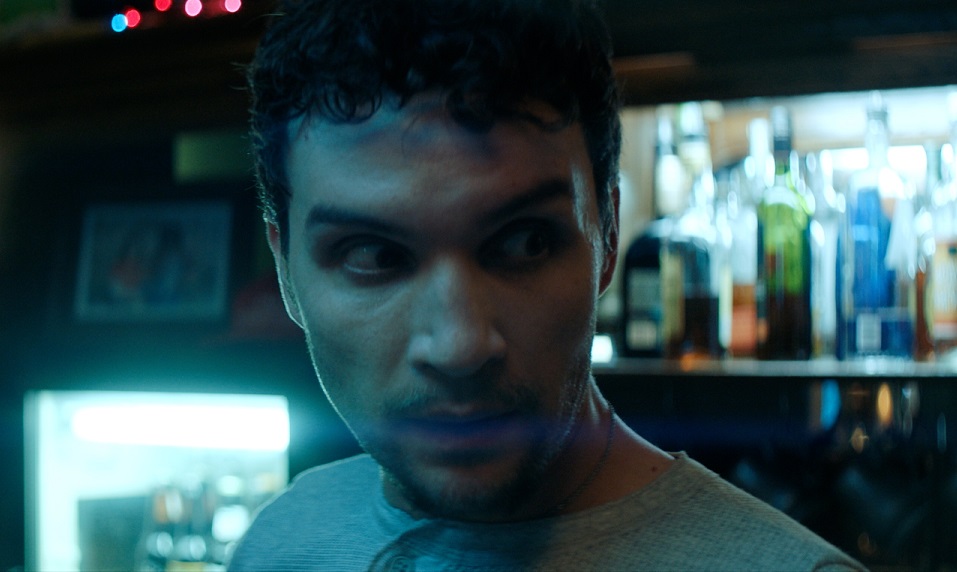A man walks into a bar and… stop us if you’ve heard this one before. No matter if you have or haven’t, because by the end of The Oak Room’s 90-minute runtime it’s one you’ll hear again and again, with the final punchline kept back until the film’s closing minutes. A tightly wound and intricately layered movie, this is one thriller that’s less about the stories being told and more about the act of storytelling itself.
The film opens on a dim and dusty bar in a rural Canadian town that is currently being battered by a particularly intense blizzard. Just as owner Paul (Peter Outerbridge) is about to lock up for the night, a balaclava-clad stranger stumbles into the premises, before revealing himself as Steve (RJ Mitte), the prodigal son of Paul’s deceased friend Gord. The acrimonious manner of Steve’s departure, his failure to show up at his dad’s funeral and the debts he still owes Paul earn him a reception that’s only slightly less frosty than the weather outside, but Steve offers to settle the arrears – not with cash, but with a tale.
Paul is initially as dismissive of this proposal as the audience, but Steve ploughs ahead unperturbed, weaving a yarn about another bartender working in another bar in the midst of another snowstorm that is happened upon by another stranger at closing time. More stories are contained within the ones that preceded them like the toys in a Kinder Egg, playing upon the repetition and revealing titbits of each character’s back story with a languorous pacing that’s somewhere between tantalising and stultifying.
That uneven rhythm is not helped by the high levels of testosterone oozing forth from the film for almost its entire duration. All of the characters seem to carry with them a sense of ego, entitlement and exhausted patience, meaning their lines are too often delivered with the same snarling sneer and spat out with thinly veiled hostility. The claustrophobic settings of all the stories only add to that fact and it’s not hard to imagine the narrative in its theatrical form (it was adapted for the screen by original playwright Peter Genoway). While that tension might be powerful enough in more sparsely used doses, the one-tone nature of the drama itself and the dialogue which accompanies it becomes a little wearisome before long.
Fortunately, The Oak Room does find its stride after the halfway point. As the strands of the mystery begin to come together and the hidden meanings contained within reveal themselves, there are plenty of pleasures to be found in the film. Not least in the cinematography itself; measured close-ups of the actors’ visages help to convey the thoughts behind their words, while the gloomy lighting and incessantly inclement climate add to the overall aura surrounding the film.
When the denouement is finally reached, the reaction of the viewer will depend entirely on their own predilections and the brand of movie they were expecting. While The Oak Room might ultimately fail as the taut thriller it aims to be or fall short of the complexities its script shoots for, there is plenty of value in its discussion of the storytelling as a medium for human experience, especially in the examination of memory, knowledge and the idea of a ripping good yarn as a useful currency all by itself.
Part of Fantasia Film Festival 2020
